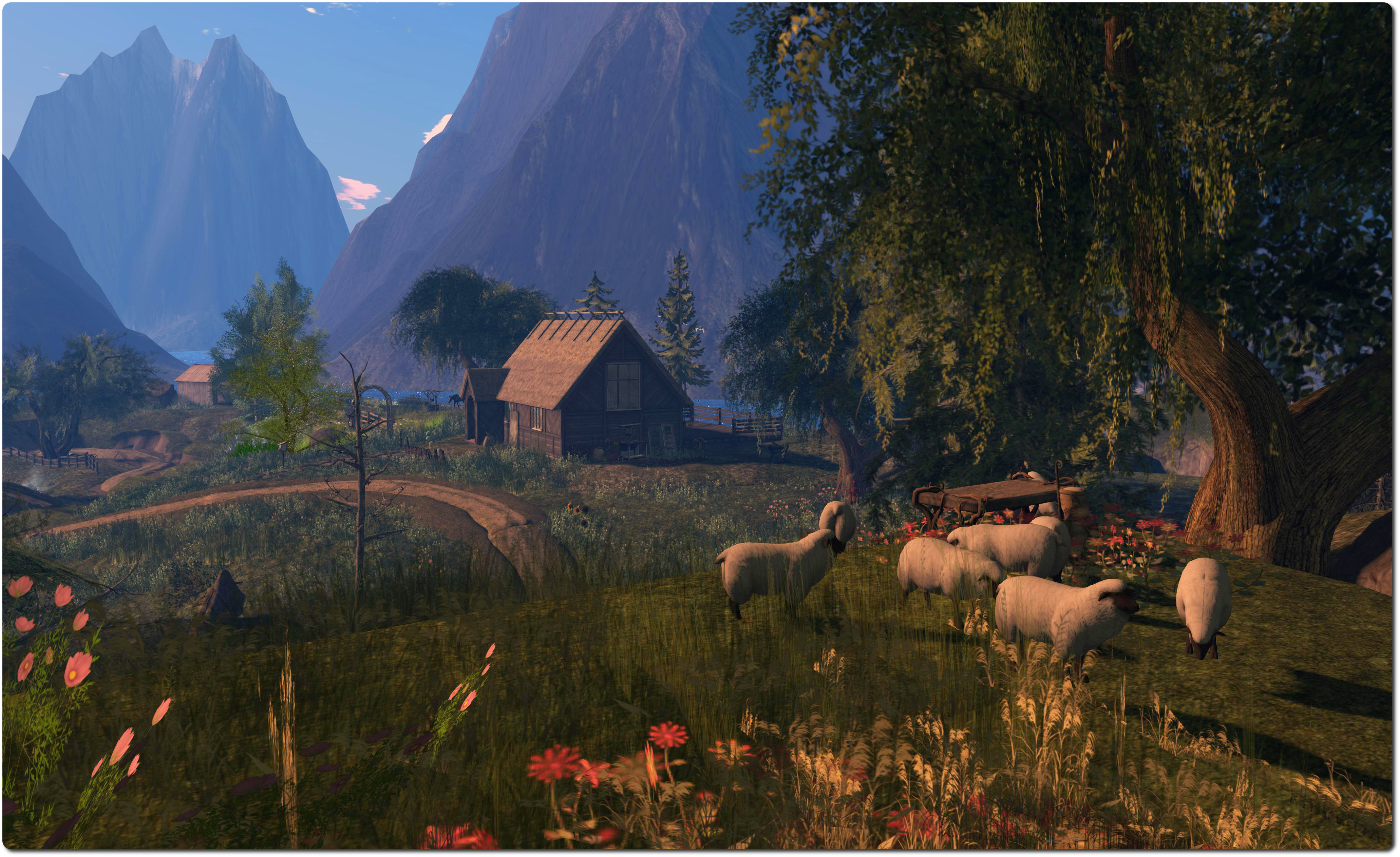 The Pilgrim’s Dawn, Banana Island, March 2014 – click for full size
The Pilgrim’s Dawn, Banana Island, March 2014 – click for full size
In September 2013, I (among many others!) visited Bowie Zeplin’s home region of Banana Island. At that time it was called Pangloss, a beautifully surreal landscape of vivid colours and striking scenes.
Now, with the changing of seasons much in evident across the grid, Bowie has remodelled the region, and while this pilgrim opted to wait until after the initial rush had passed, a note was made to retrace her footsteps and see what new delights await a re-visit. The effort proved more than worthwhile.
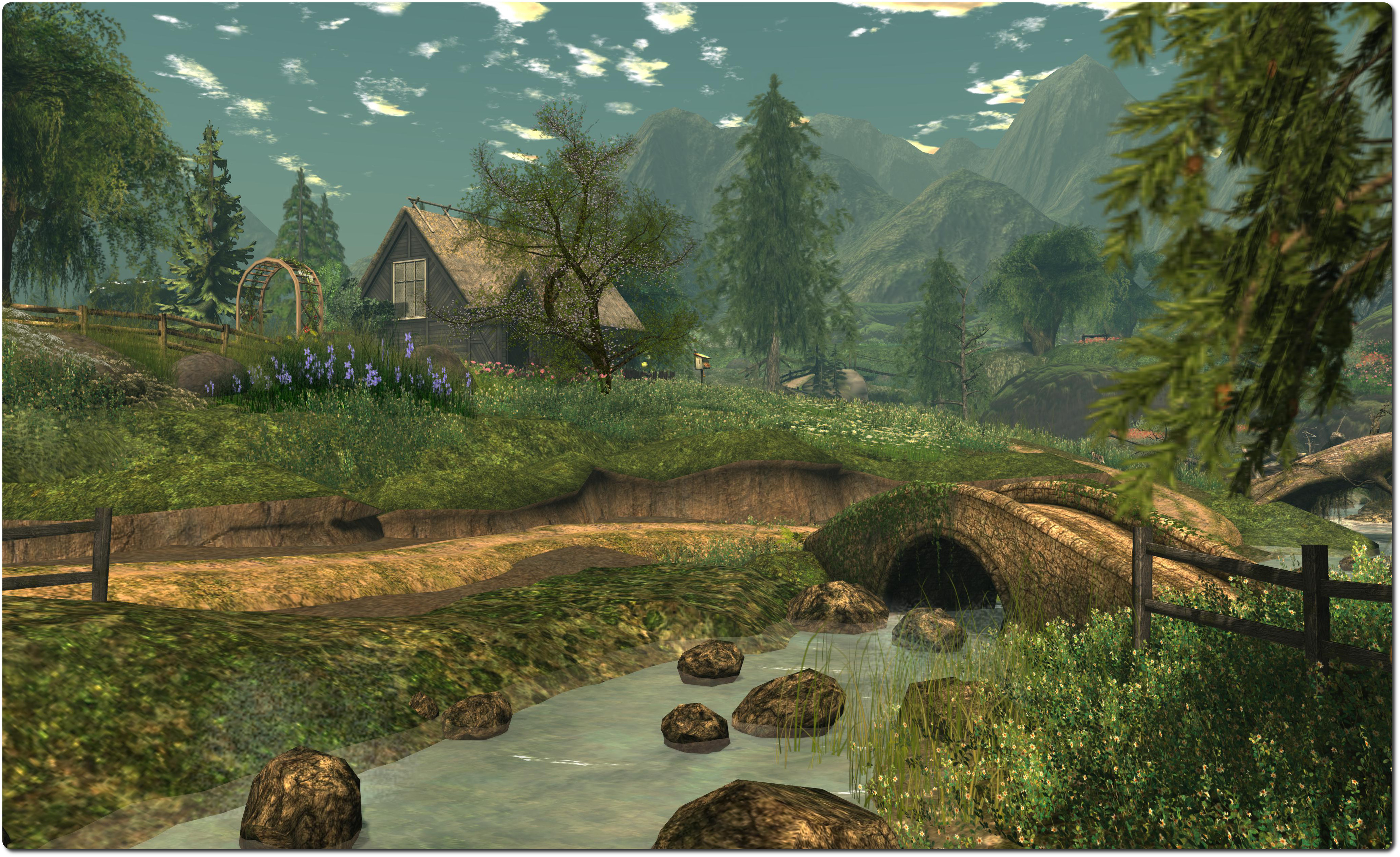 The Pilgrim’s Dawn, Banana Island, March 2014 – click for full size
The Pilgrim’s Dawn, Banana Island, March 2014 – click for full size
Where Pangloss was surreal and vivid, The Pilgrim’s Dawn, as the region is now known, is beautifully rural and scenic. On arriving, it instantly put me in mind of what might be called “Middle Zealand”, as it seems to form a combination of the scenes and landscapes gathered from around New Zealand to create Peter Jackson’s vision of Middle Earth. There are high mountains, tree-lined slopes, broad rivers, and in the midst of it all, a rural / rustic scene which, while sans Hobbit holes and the like, wouldn’t look amiss with a group of Hobbits passing through on their way to Bree…
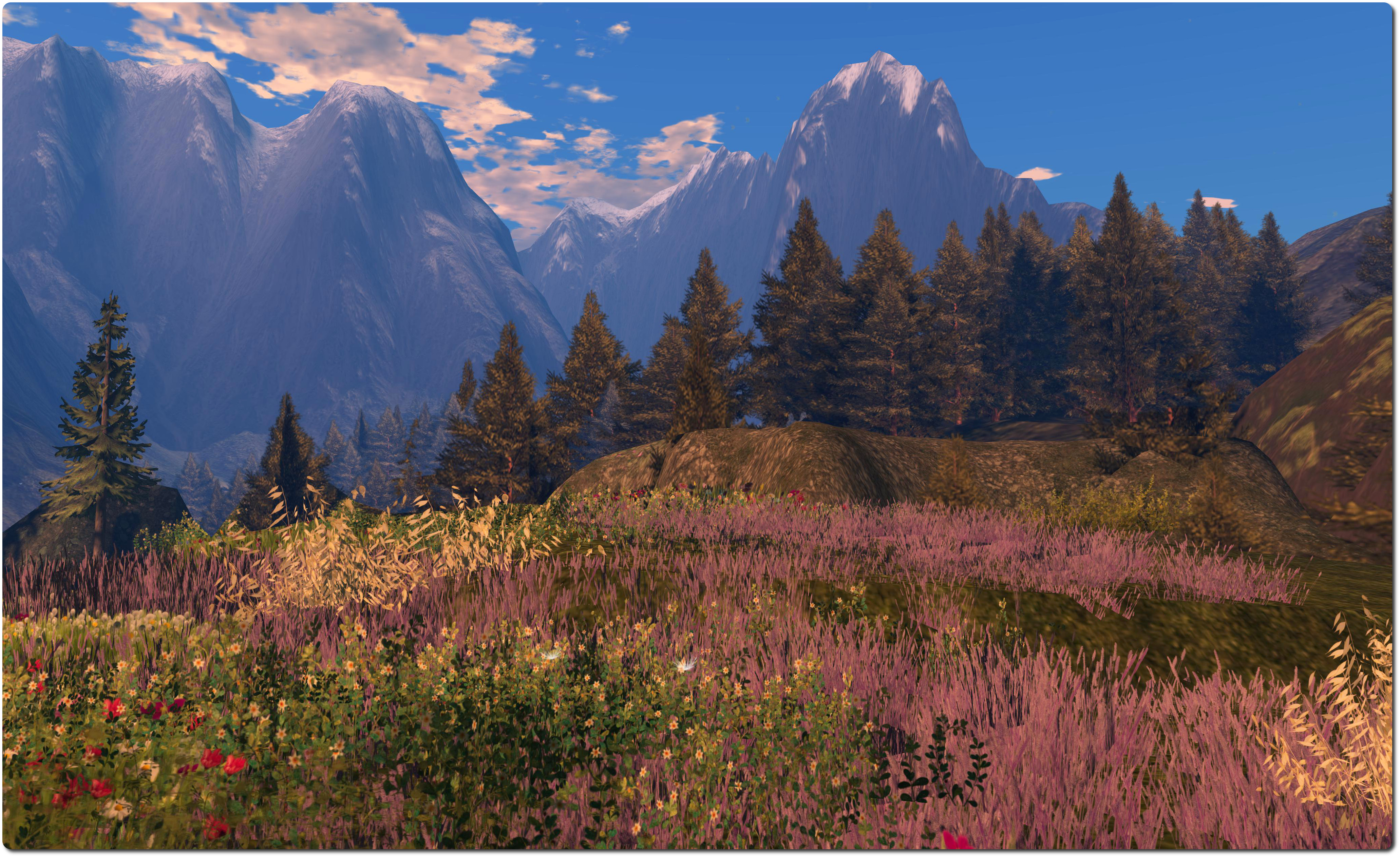 The Pilgrim’s Dawn, Banana Island, March 2014 – click for full size
The Pilgrim’s Dawn, Banana Island, March 2014 – click for full size
Even without the Tolkien references, Pilgrim’s Dawn is simply breathtaking in the way it blends surrounding scenery and region into a whole, presenting a landscape in which one is instantly immersed. It’s very easy to imagine walking out onto the deck behind the house on a morning, mug of coffee in hand, and deciding that today would be a good day to climb the nearest peak and then just sit and paint or photograph the surrounding lands.
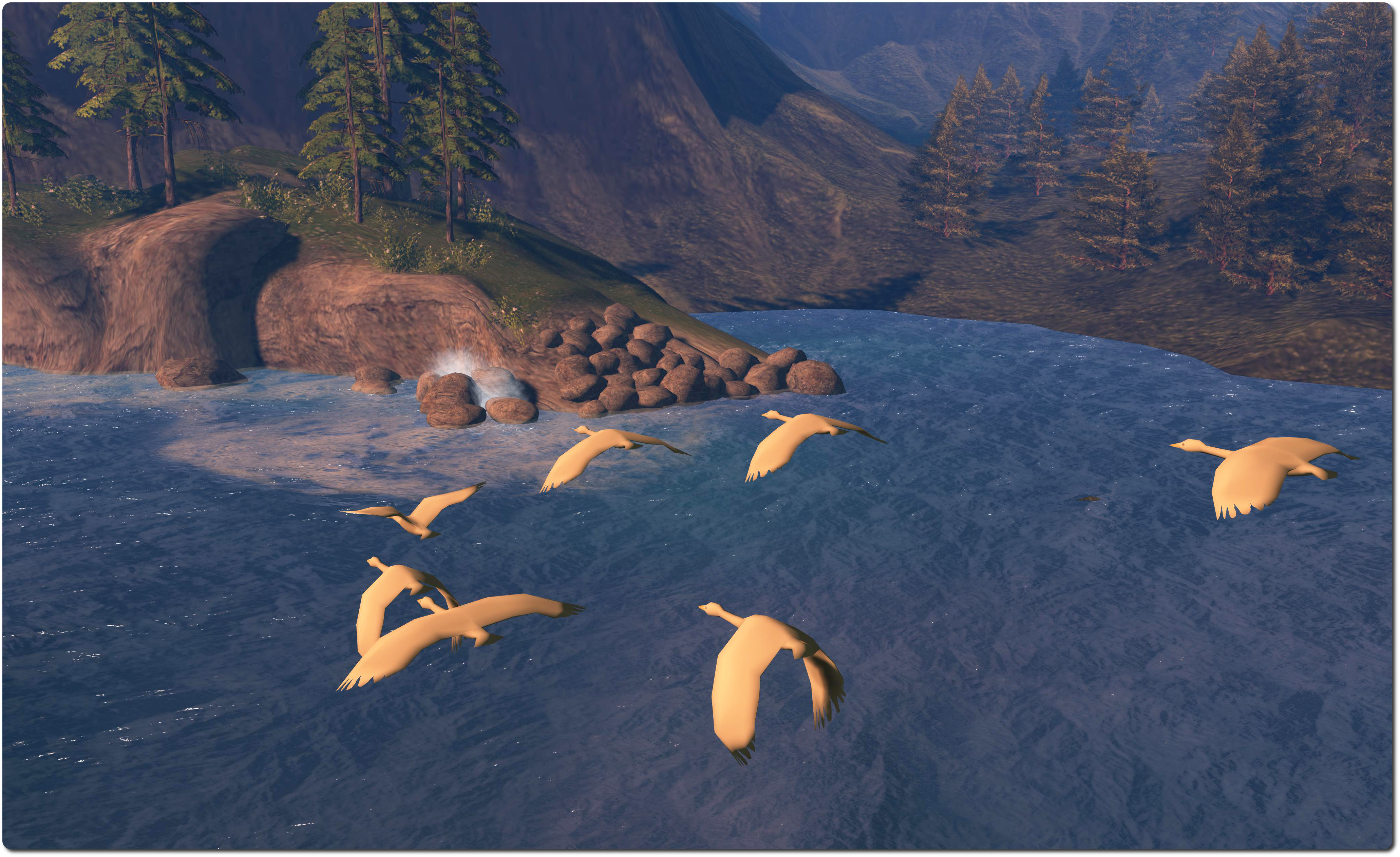 The Pilgrim’s Dawn, Banana Island, March 2014 – click for full size
The Pilgrim’s Dawn, Banana Island, March 2014 – click for full size
This is an environment which really lends itself to wide photographs of the landscape, something which the default windlight only enhances – but there is also a wealth of detail here as well which makes careful exploration a must. There are tracks to follow across the region, running down from the house to the pastures of the headland, or around from the beach, along the side of the river and up into the hills where sheep graze contentedly. Across the river sits a wooded headland where deer roam, and above it, overlooking the broad stretch of water separating lowlands from mountains, sits an old mine, awaiting intrepid explorers.
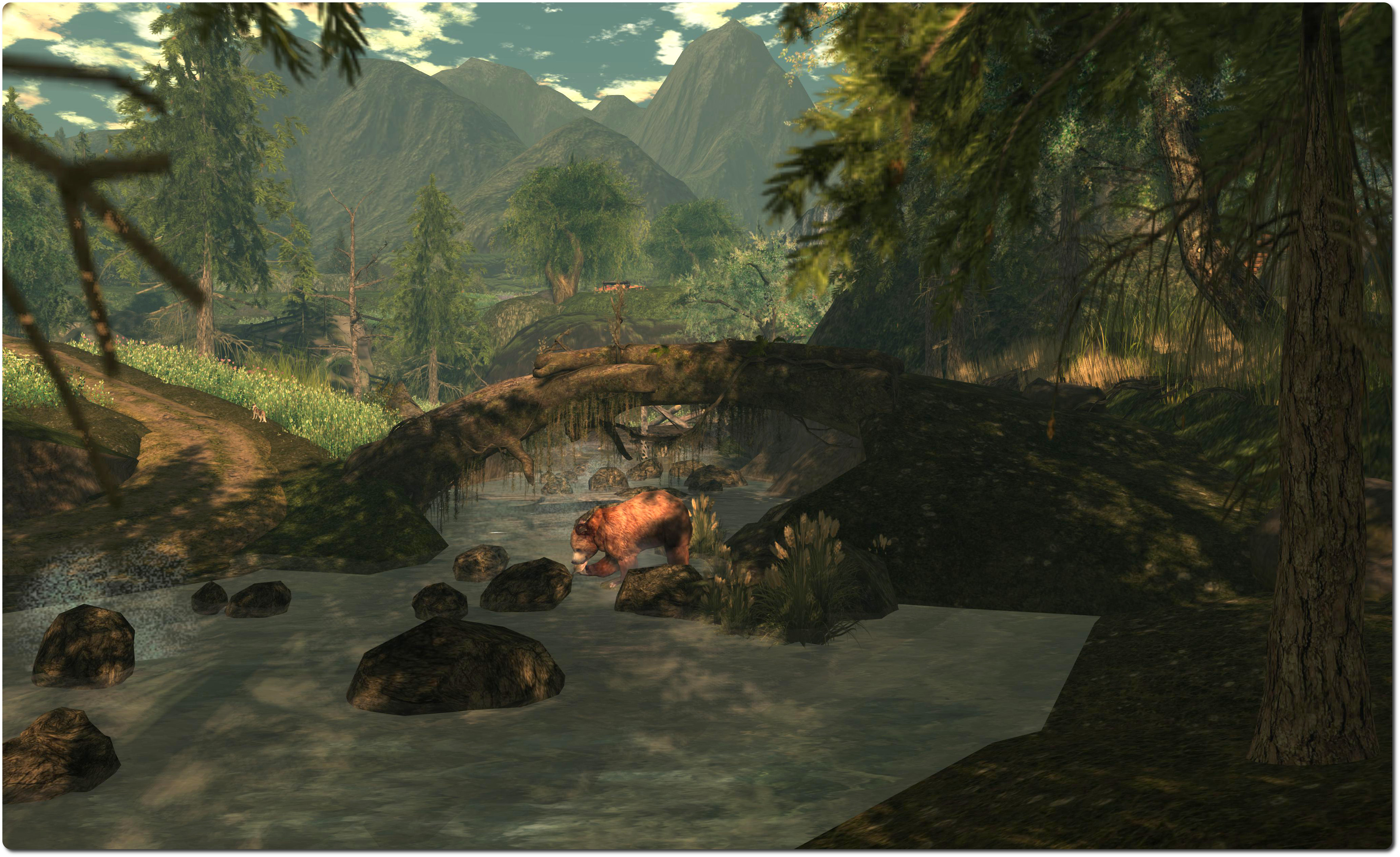 The Pilgrim’s Dawn, Banana Island, March 2014 – click for full size
The Pilgrim’s Dawn, Banana Island, March 2014 – click for full size
It’s been whispered to me that Pilgrim’s Dawn is a commissioned build, and that as such it may well be vanishing in the near future. If so, that’s something of a shame, because it is very much a place where this pilgrim definitely wanted to call her progress to a halt and simply rest, soaking up the scenery and environment.
Do be sure not to miss it.
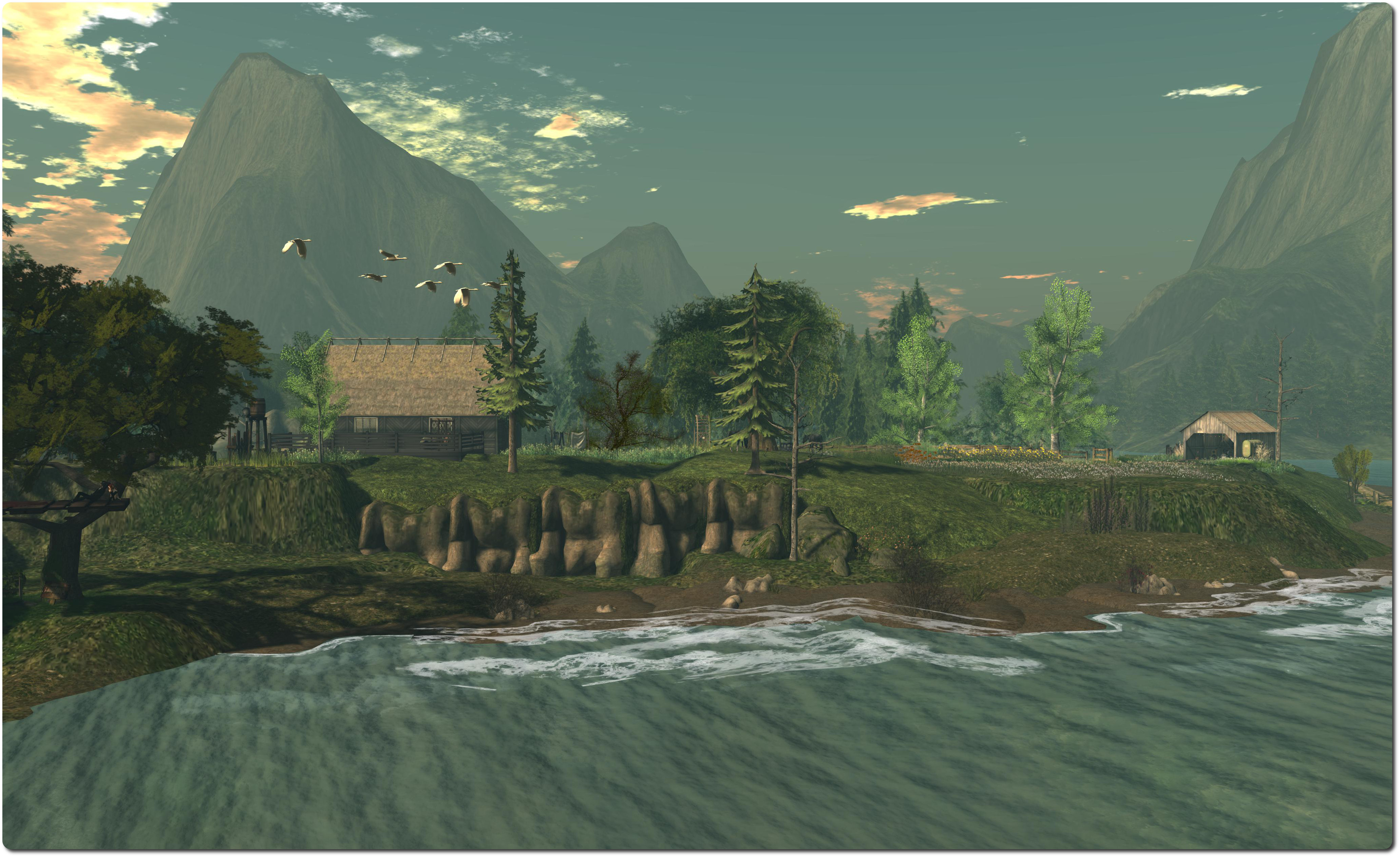 The Pilgrim’s Dawn, Banana Island, March 2014 – click for full size
The Pilgrim’s Dawn, Banana Island, March 2014 – click for full size
Related Links
- The Pilgrim’s Dawn SLurl (Rated: Moderate)
- My Pilgrim’s Dawn Flickr set



